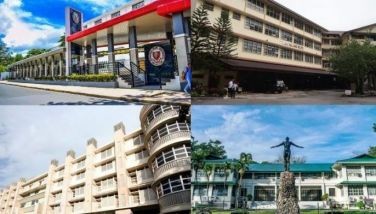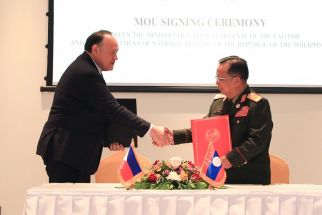TRM to review tariff on imported fructose
March 11, 2002 | 12:00am
The Tariff and Related Matters (TRM) Committee, upon the request of the sugar industry, will review the existing tariff on imported fructose.
Fructose, an expensive sugar substitute, currently has a tariff rate of only five percent.
The sugar industry wants the tariff rate on fructose raised to 50 percent especially since it competes with locally produced sugar.
Imported fructose costs around P4,000 per 50 kilograms compared to cane sugar which costs P950 per kilo.
However, fructose is more economical to use as one teaspoon of fructose is equivalent to two teaspoons of sugar.
Earlier, the local sugar industry successfully lobbied for a 65-percent tariff on imported sugar.
The sugar industry is also asking the government to include fructose in the country’s final list of sensitive agricultural commodities which will be exempted upon the effectivity of the Asean Free Trade Agreement (AFTA) in 2003. By that time, the tariff wall among Asean-member nations will be lowered to between zero and five percent.
Aside from competition from abroad and sugar substitutes, the local sugar industry continues to suffer from inefficiencies and high financing cost.
Industry sources said the tariff protection is intended to give the industry breathing space before it faces a more open market.– Marianne Go
Fructose, an expensive sugar substitute, currently has a tariff rate of only five percent.
The sugar industry wants the tariff rate on fructose raised to 50 percent especially since it competes with locally produced sugar.
Imported fructose costs around P4,000 per 50 kilograms compared to cane sugar which costs P950 per kilo.
However, fructose is more economical to use as one teaspoon of fructose is equivalent to two teaspoons of sugar.
Earlier, the local sugar industry successfully lobbied for a 65-percent tariff on imported sugar.
The sugar industry is also asking the government to include fructose in the country’s final list of sensitive agricultural commodities which will be exempted upon the effectivity of the Asean Free Trade Agreement (AFTA) in 2003. By that time, the tariff wall among Asean-member nations will be lowered to between zero and five percent.
Aside from competition from abroad and sugar substitutes, the local sugar industry continues to suffer from inefficiencies and high financing cost.
Industry sources said the tariff protection is intended to give the industry breathing space before it faces a more open market.– Marianne Go
BrandSpace Articles
<
>
- Latest
- Trending
Trending
Latest
Trending
Latest
Recommended






























